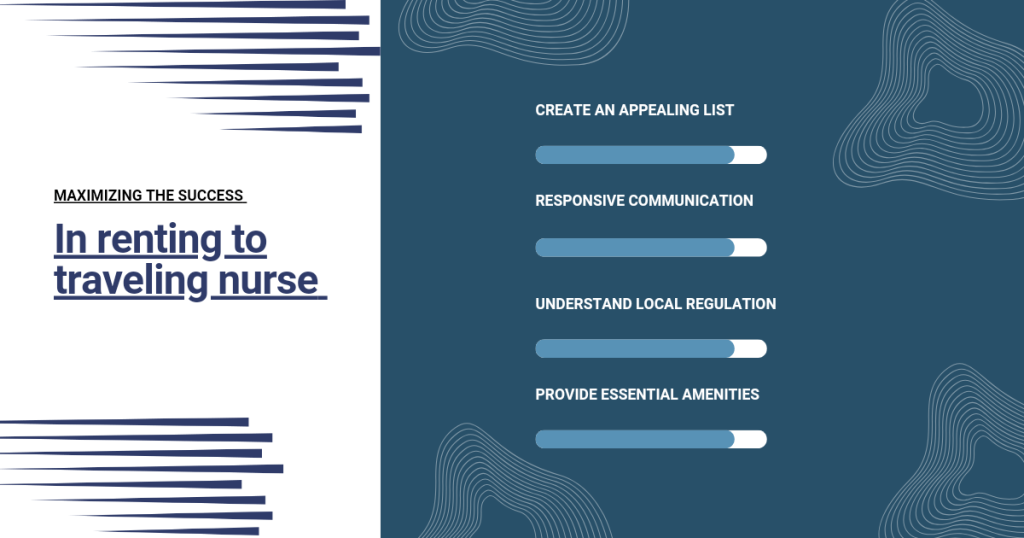How Much Experience To Be a Travel Nurse
Decoding the Path: How Much Experience Is Needed to Become a Travel Nurse?
Aspiring travel nurses often find themselves asking a pivotal question: how much experience is needed to become a travel nurse?
In the dynamic world of healthcare, the allure of travel nursing beckons to those seeking adventure, professional growth, and diverse experiences.
In this comprehensive guide, we’ll unravel the intricacies of the prerequisites, shed light on the expectations of healthcare facilities, and provide insights for those embarking on the exciting journey of becoming a travel nurse.
Understanding the Basics of Travel Nursing
Before delving into the experience requirements, it’s essential to grasp the fundamentals of travel nursing. Travel nurses are skilled healthcare professionals who take on temporary assignments in various locations.
These assignments can last anywhere from 8 to 26 weeks, providing nurses with the opportunity to work in different healthcare settings, adapt to diverse environments, and contribute to patient care across the country.
The General Expectation for Experience in Travel Nursing

While there is no strict formula dictating the exact number of years of experience required to become a travel nurse, most travel nursing agencies and healthcare facilities prefer candidates with a solid foundation of clinical experience.
A common benchmark is typically one to two years of clinical experience in a specific specialty.
Factors Influencing Experience Requirements
Several factors influence the experience requirements for travel nursing:
Healthcare Facility Preferences
Different healthcare facilities may have varying preferences when it comes to the experience of travel nurses.
Some facilities may prioritize candidates with extensive experience to ensure seamless integration into their teams, while others may be more open to considering nurses with a shorter but focused clinical background.
Specialty and Critical Care Areas

Certain specialties and critical care areas may demand a higher level of experience. Specialized fields such as intensive care units (ICU), emergency departments, and operating rooms often seek nurses with a robust background due to the demanding nature of these environments.
Licensing Requirements
State licensing boards may have specific experience requirements for travel nurses. Aspiring travel nurses need to research and understand the licensing requirements of the states where they plan to practice. Some states may require a set number of years of experience to obtain licensure.
Travel Nursing Agency Criteria
Travel nursing agencies act as intermediaries between healthcare facilities and nurses. Each agency may have its own set of criteria for selecting candidates.
While some agencies may be flexible regarding experience, others may adhere to stricter guidelines.
Benefits of Having Adequate Experience

Smooth Integration into New Environments
Nurses with a solid foundation of experience are often better equipped to navigate the challenges of adapting to new healthcare environments.
They can quickly familiarize themselves with different protocols, technologies, and workflows, ensuring a smoother transition into temporary assignments.
Confidence in Handling Diverse Cases
Experience brings confidence, and travel nurses who have encountered a variety of cases and patient scenarios are better prepared to handle the unexpected. This confidence is invaluable, especially in fast-paced and dynamic healthcare settings.
Increased Job Opportunities
Healthcare facilities often prefer candidates with experience, making nurses with a proven track record more competitive in the travel nursing job market. Having a wealth of experience opens doors to a broader range of assignments and locations.
Navigating the Transition: Gaining Experience for Aspiring Travel Nurses
For those who are passionate about travel nursing but may not yet meet the preferred experience criteria, there are strategic steps to consider:
Specialized Training and Certifications
Acquiring additional certifications and specialized training in a particular nursing specialty can enhance a nurse’s qualifications. Many healthcare facilities appreciate candidates who have invested in continuous learning.
Networking and Mentorship
Connecting with experienced travel nurses and seeking mentorship can provide valuable insights and guidance.
Networking within the healthcare community can also open doors to opportunities that may not be publicly advertised.
Consideration of Entry-Level Travel Nursing Positions
Some travel nursing agencies offer entry-level positions for nurses who may not have extensive experience but are eager to embark on a travel nursing career. These positions may provide a stepping stone to gaining the required experience.
Conclusion About How Much Experience To Be a Travel Nurse
In conclusion, the journey to becoming a travel nurse is as diverse as the assignments themselves. While there is a general expectation for clinical experience, aspiring travel nurses should view their unique backgrounds and strengths as assets.
Whether you have one year or a decade of experience, the key is to demonstrate a commitment to excellence in patient care, adaptability to new environments, and a passion for the enriching experiences that travel nursing offers.
By navigating the factors influencing experience requirements and proactively seeking growth opportunities, nurses can embark on a fulfilling career as a travel nurse, contributing to healthcare communities across the nation.


